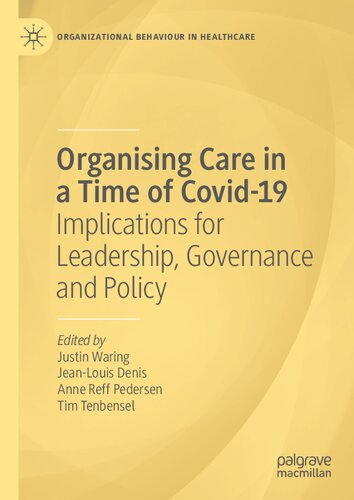

Most ebook files are in PDF format, so you can easily read them using various software such as Foxit Reader or directly on the Google Chrome browser.
Some ebook files are released by publishers in other formats such as .awz, .mobi, .epub, .fb2, etc. You may need to install specific software to read these formats on mobile/PC, such as Calibre.
Please read the tutorial at this link: https://ebookbell.com/faq
We offer FREE conversion to the popular formats you request; however, this may take some time. Therefore, right after payment, please email us, and we will try to provide the service as quickly as possible.
For some exceptional file formats or broken links (if any), please refrain from opening any disputes. Instead, email us first, and we will try to assist within a maximum of 6 hours.
EbookBell Team

5.0
100 reviewsThe COVID-19 pandemic has led to radical transformations in the organisation
and delivery of health and care services across the world. In many countries,
policy makers have rushed to re-organise care services to meet the surge demand
of COVID-19, from re-purposing existing services to creating new ‘field’ hospitals.
Such strategies signal important and sweeping changes in the organisation of
both ‘COVID’ and ‘non-COVID’ care, whilst asking more fundamental questions
about the long-term organisation of care ‘after COVID’. In some contexts, the
pandemic has exposed the fragilities and vulnerabilities of care systems, whilst
in others, it has shown how services are organised to be more resilient and
adaptive to unanticipated pressures.
The COVID-19 pandemic presents a rare opportunity to examine empirically and
to develop new theoretical frameworks on how and why health systems adapt to
such unusual and intense pressures. International contributors consider how
responses to COVID-19 are transforming the organisation and governance of
health and care services and explore questions around strategic leadership at
local, regional, national and transnational level. The book offers unique insight
and analysis on the dynamics of policy-making, the organisation and governance
of care organisations, the role of technologies in governing, the changing role of
professionals and the possibilities for more resilient care systems.